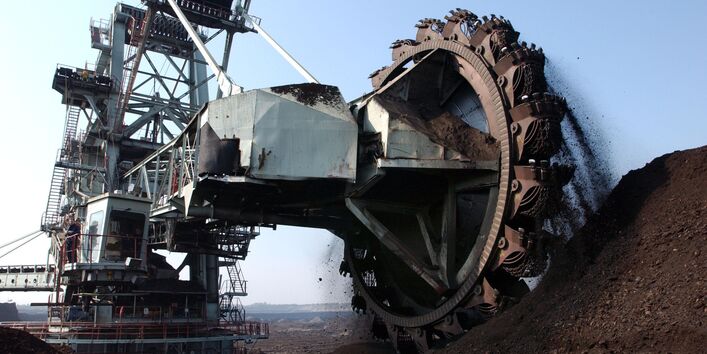Resource Commission at the German Environment Agency
The Resource Commission at the German Environment Agency (UBA) was launched in 2013 to generate and share knowledge and expertise on the more sustainable use of natural resources. The Commission is made up of outstanding experts from science and research, administration, industry, and civil society. It is supported by a secretariat at UBA. The Commission examines key issues relating to better resource management and the Circular Economy in Germany, Europe, and the World and produces reports that summarize relevant findings for further use for UBA and policymakers. The overarching goal is to highlight the resource implications of our lifestyles and to outline science-based pathways toward a good life within planetary boundaries.
Mission:
The use of natural resources such as raw materials, water, land, environmental media, and biodiversity has been rising steadily for years and is increasingly putting pressure on the climate system and ecosystems. Despite numerous political efforts, the global use of natural resources is still strongly linked to economic growth. In view of a forecasted further increase in the global population to around 10 billion people by 2050, the Resource Commission at UBA aims at identifying opportunities and leverage point towards a more sustainable and socially just use of natural resources. The specific tasks of the commission include:
- An independent and science-based assessment of key issues and developments on the sustainable use of natural resources, considering in particular associated environmental impacts and social aspects along the entire life cycle.
- Advising the German Environment Agency with concrete proposals and ideas for the further development of resource policy and joint communication of findings to policy-makers and society in order to further strengthen sustainable resource use in Germany, the EU, and globally.
- Contributing to a better understanding of sustainable levels of natural resource use.
Work areas during the third appointment period (May 2021 - May 2024):
- Opportunities and limits of recycling in the context of the circular economy
- Recommendations for a resource-efficient and circular economy (only available in German language)
- Indicators in the area of sustainable resource use and circular economy
- Circular economy and design (only available in German language)
Members of the Resource Commission at the German Environment Agency (third appointment period)
- Dr. Benjamin Bongardt (Senatsverwaltung für Umwelt, Verkehr und Klimaschutz Berlin)
- Klaus Dosch (Faktor X Agentur)
- Prof. Dr. Martin Faulstich (Technische Universität Dortmund)
- Prof. Dr.-Ing. Sabine Flamme (FH Münster)
- Prof. Mareike Gast (Kunsthochschule Halle)
- Dr.-Ing. Christian Hagelüken (retired, previously Umicore AG & Co. KG)
- Dipl.-Ing. Sascha Hermann (VDI Technologiezentrum GmbH)
- Prof. Dr. Melanie Jaeger-Erben (Brandenburgische Technische Universität Cottbus-Senftenberg)
- Prof. Dr. Christa Liedtke (Wuppertal Institut für Klima, Umwelt, Energie)
- Prof. Dr. Bruno Oberle (President World Resource Forum, Member IRP, International Resource Panel)
- Prof. Dr. Armin Reller (Emeritus, Universität Augsburg)
- Prof. Dr. Liselotte Schebek (Technische Universität Darmstadt)
- Prof. Barbara Schmidt (Weißensee Kunsthochschule Berlin)
- Prof. Dr. Mario Schmidt (Hochschule Pforzheim)
- Johanna Sydow (Heinrich-Böll Stiftung)
- Dr. Julia R. Tschesche (Effizienz-Agentur NRW)
- Dr. Hildegard Wilken (Bundesanstalt für Geowissenschaften und Rohstoffe (BGR))
- Herwart Wilms (REMONDIS SE &Co. KG)
The UBA-secretariat supporting the work of Resource Commission is located in Section I 1.2: “Capacity Building, Sustainable Resource Use, Security”.
